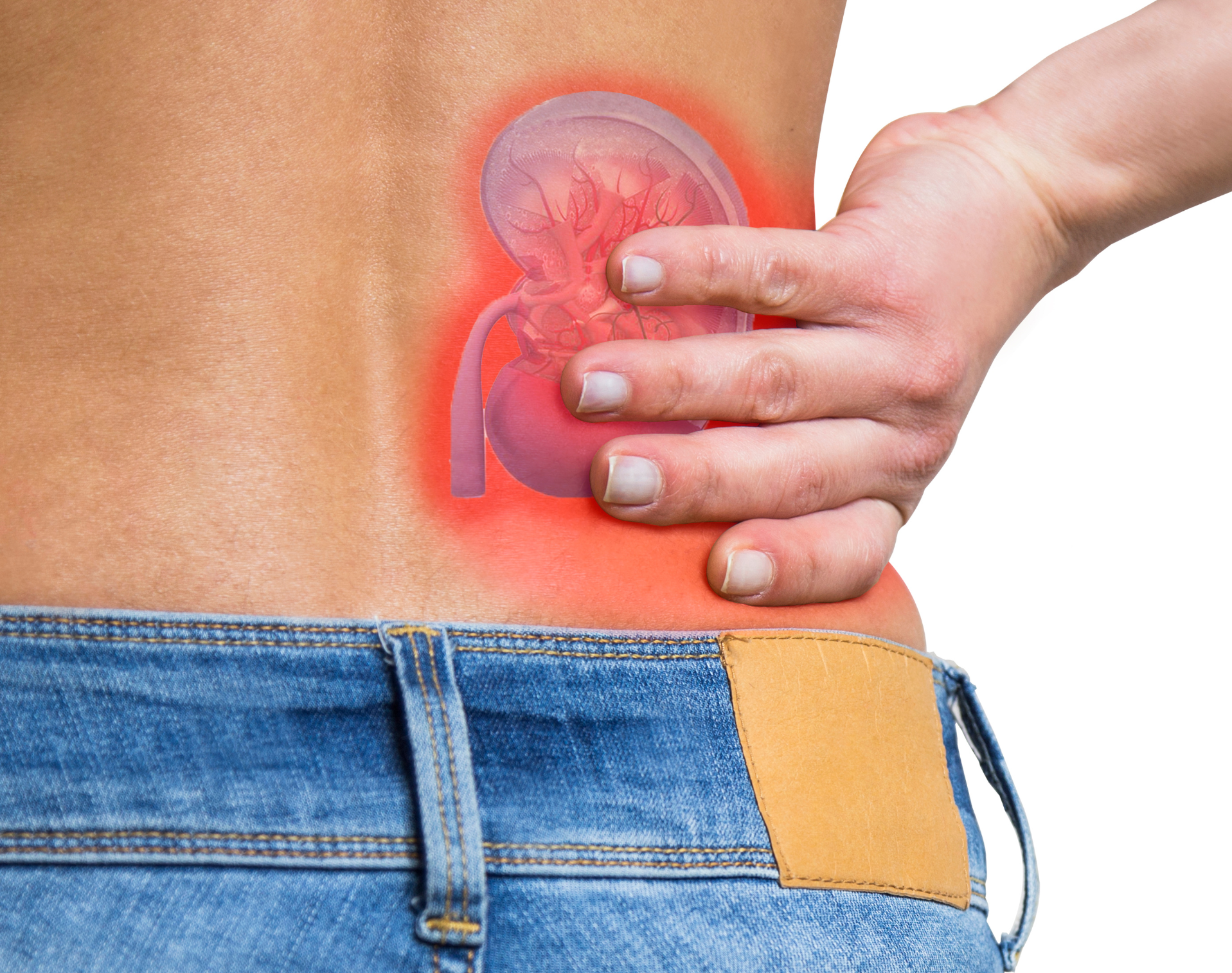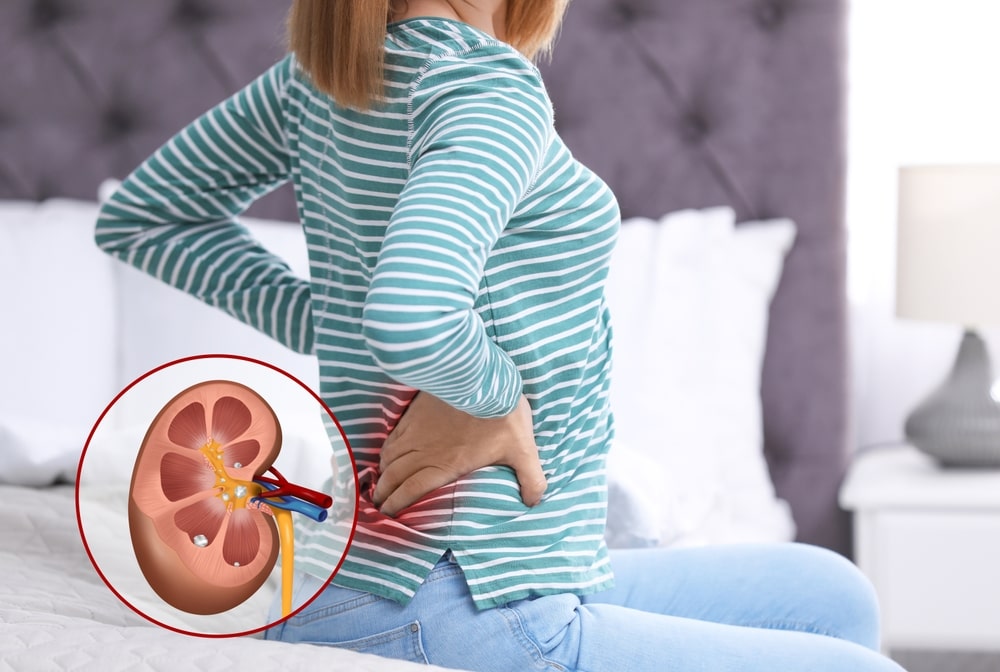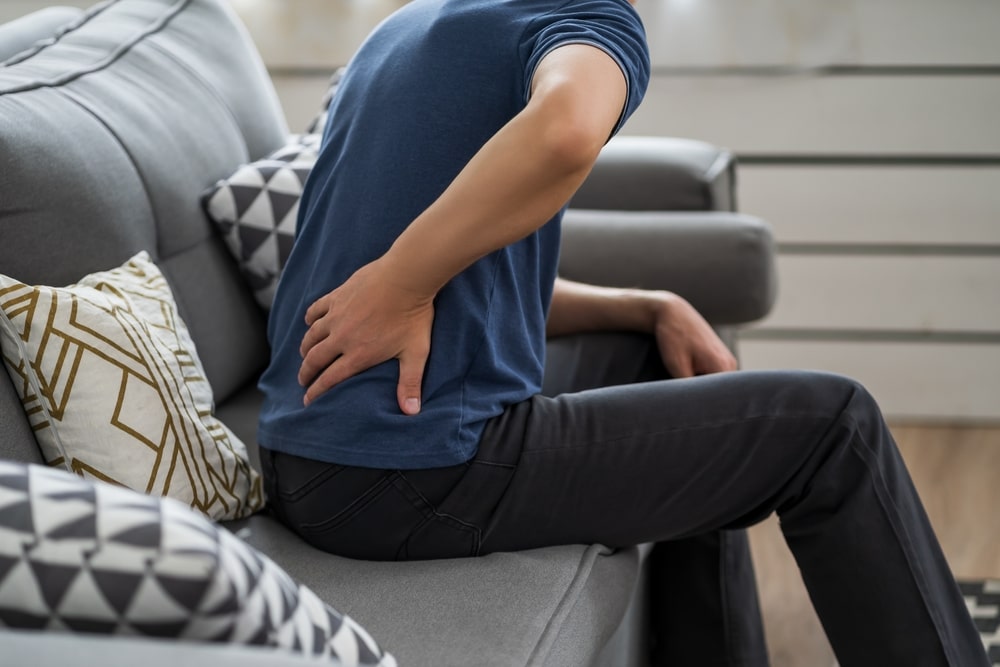Mr Sonpreet Rai
Consultant Urological and Robotic Surgeon
Specialist expertise: Men's Health, Urology, Prostate Cancer Diagnostics, Kidney Stones, BPH Treatment and Surgery, Urinary Infection.
Kidney stones is a common urinary system disorder that can affect any individual. While stones can pass through your system on their own, treatment is sometimes needed to remove them.

Your kidneys are two bean-shaped organs in your abdomen. They play a key role in the removal of wastes and extra fluid from your body.
As the kidneys filter your blood of impurities, minerals and acid, salts can accumulate and harden over time. These solid crystalline deposits are called kidney stones, which can form in one or both kidneys. They can range in size from a grain of rice to a pearl or even larger. The stones can travel down the urinary tract and block the flow of urine, causing pain and bleeding.
Kidney stone formation is a common urinary system disorder that can affect any individual. However, men and overweight people are at a higher risk of developing them.

Kidney stones form when certain salts and minerals in the urine become highly concentrated and build up. This can happen due to:
Insufficient water intake (dehydration)
Eating a diet high in sodium (salt), protein and sugar
Obesity
Treatments for kidney diseases and cancer
Certain medications
Family history of kidney stones
Intestinal and digestive diseases such as Crohn’s disease and inflammatory bowel disease (IBD)
Single functioning kidney
Recurrent urinary tract infections (UTIs)
Symptoms of kidney stones may not manifest until the stone moves around the kidney or down into the urinary tract. Symptoms may include:
Severe pain below your ribs, in your back, sides, lower abdomen and groin
Pain that comes in waves and fluctuates in intensity
Frequent urge to urinate
Pain or a burning sensation when urinating
Pink, brown or red urine that is cloudy or foul-smelling

You should call your doctor if you find it difficult to pass urine, or if the pain increases and is accompanied by fever, chills, vomiting and nausea.
When kidney stones are suspected, your OneWelbeck consultant will likely order blood tests, urine tests and imaging scans, such as a CT scan or ultrasound to diagnose the condition. These can be usually arranged on the same day of your consultation.
If you’re passing stones when you urinate, you may also be asked to urinate through a sieve so that the stones can be collected for testing in the lab. The results determine the type of kidney stones you have, which can help your consultant identify the cause and formulate an appropriate treatment plan.
If you have recurrent kidney stones, more than one stone, a family history of kidney stones or an underlying medical condition that predisposes you to stone formation, then a more extensive investigation called a 24-hour metabolic stone screen will be arranged. This involves collecting urine over two 24-hour periods to measure the chemicals within your urine to see if there is an underlying cause for the stone formation.
There are four types of kidney stones, each named after the type of crystals they’re made up of:
Most kidney stones are calcium stones. These are usually in the form of calcium oxalate but can also occur in the form of calcium phosphate.
Eating lots of high-oxalate foods, high doses of vitamin D, intestinal bypass surgery, some metabolic disorders and certain medications can increase the calcium oxalate or calcium phosphate levels in your urine.
Uric acid stones can form if you eat a lot of animal proteins, lose too much fluid because of chronic diarrhoea or malabsorption or if you have diabetes or metabolic syndrome. Some genetic factors can also increase your risk of uric acid stones.
Struvite stones are caused by urinary tract infections. They can form quickly and become quite large and they sometimes cause few symptoms and occur with little warning. Recurrent infections can lead to a staghorn calculus, which is a very large kidney stone, usually requiring surgical removal.
Cystine stones are caused by a hereditary condition called cystinuria which causes the kidneys to excrete too much of a specific amino acid.
Conservative treatment:
Kidney stone treatment usually depends on the size and location of the stones. Small kidney stones can be flushed out by drinking plenty of water and usually pass on their own. Your doctor may prescribe you some medications to relieve pain.
You would usually be advised to sieve your urine to see if you have passed the stone, and are likely to require follow-up tests to ensure that the stone has passed spontaneously.
Active interventions:
Active intervention may be required for larger stones that are unlikely to pass by themselves or that are causing too many problems. This could be in the form of:
Extracorporeal shock wave lithotripsy (ESWL)
ESWL is a non-invasive procedure and is performed on an outpatient basis, so you don’t need to stay in hospital.
You will lie on a bed and a water-filled cushion will be pressed against your skin where your affected kidney is. The location of the stone is determined with the help of ultrasound or X-ray.
Then, using a device called a lithotripter, high-energy sound waves are passed over the area to treat the stones from outside your body. The shock waves vibrate and break the stones down without harming the rest of your body. This breaks the stones up into fragments so you can pass them in your urine.
This treatment is non-invasive so general or local anaesthetic is not required. However, the stone fragments must pass from your kidney and down your ureter pipe, which may cause pain (renal colic).
Ureteroscopy
Ureteroscopy is performed under general anaesthetic and involves the insertion of a very small telescope up through the water pipe (urethra) to the bladder and then up the ureter. This is the most successful way to treat kidney stones up to 15 mm in size.
A straight (semi-rigid) telescope is normally used for stones in the ureter. A flexible telescope with a movable tip is used to access stones in the kidney. A laser fibre can then be inserted down the middle of the telescope to allow the stone to be broken down. A tiny wire basket may also be used to remove the stone fragments. Very small fragments may be left to pass out on their own.
Percutaneous nephrolithotomy (PCNL)
PCNL is the surgical removal of stones from the kidney. This is reserved for larger stones or stones that cannot be treated with either ureteroscopy or ESWL.
A general anaesthetic is required and a small (1cm) incision is made in the skin overlying the kidney. A telescope is then introduced through this incision into the kidney and the stone is broken and removed. At the end of the procedure, a small tube is left in the kidney, which drains out through the skin. This is normally removed after 24 hours.

At OneWelbeck, our urology specialists are experts in the diagnosis and treatment of kidney stones. Providing world-class care and treatment in our state-of-the-art facilities, our specialists deliver patient-centred care and ensure you leave us with the best possible outcome.
Get in touch today to book an appointment.
In the UK, kidney stones affect around 3 in 20 men and 1 in 20 women. They most commonly occur between the ages of 20 and 50 but can occur at any age. Once someone has had a kidney stone they have a 50% chance of forming further stones within 5 to 10 years.
If left untreated, kidney stones can put you at risk of developing other problems and conditions including:
Hydronephrosis - a blockage that causes urine to back up into your kidney, causing it to swell
Pyelonephritis (kidney infection)
Acute kidney injury (a type of reversible kidney failure)
Frequent urinary tract infections (UTIs)
Chronic kidney disease (CKD)
Sepsis
Kidney stones can be prevented by making some lifestyle changes like drinking more water and reducing the intake of excess salt and animal proteins.
Stones are more likely to form when the urine is concentrated. Aim to drink 2.5 to 3 litres of fluid a day to avoid stone formation. This should keep the urine clear rather than golden/yellow.
Even though most stones are made of calcium, you should not reduce the amount of calcium in your diet. It has been shown that low calcium diets are associated with higher rates of stone formation and therefore dairy products, like milk, cheese and yoghurt, which are rich in calcium, should still be consumed normally.
A high salt intake may be associated with stone formation. It’s therefore advisable not to add salt to your food excessively. A diet low in animal protein and rich in fibre may also prevent stone formation.
Finally, a chemical called citrate naturally prevents stone formation in the urine. You can increase the amount of citrate in the urine by having a glass of fresh orange or lemon juice each day.
Staying hydrated is key to flushing out kidney stones. You should aim to drink 2.5 to 3 litres of fluid throughout the day, every day until the stones have cleared.
It can also be helpful to add fresh lemon juice to your water, avoid fizzy drinks and cut down on your salt intake.
London’s leading urologists have come together to create a leading one-stop shop for male health. The specialists at OneWelbeck Men's Health use the latest innovations in healthcare to accurately diagnose and treat a wide range of urological conditions.